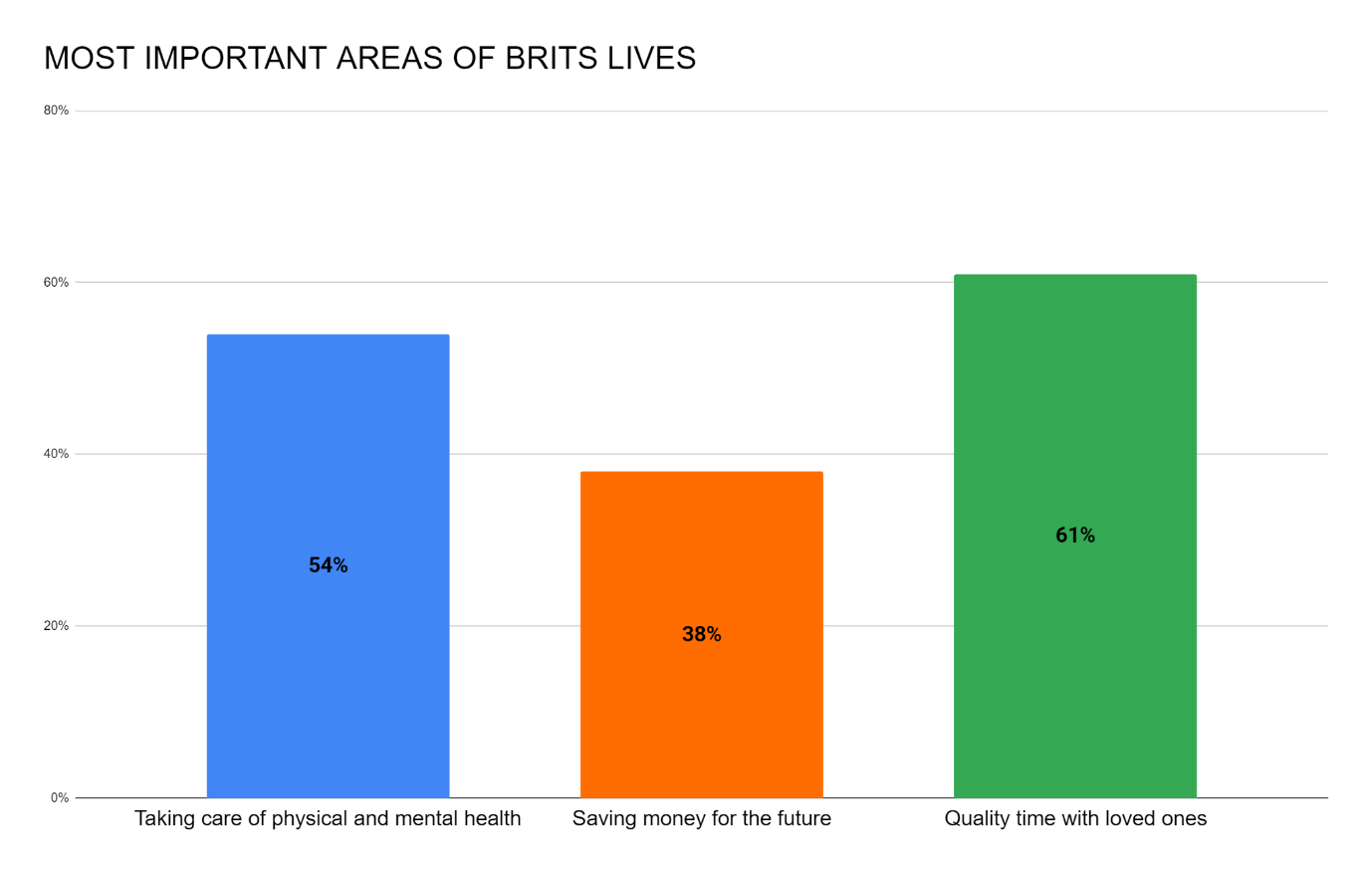Is hybrid-working damaging our mental health?

New global Report from Dynata shows that of the 59% of hybrid or remote working Brits, 71% are struggling with work-life balance
- 59% of UK employees want to work hybrid or entirely remote
- Brits who partake in the hybrid-work approach, are both the happiest in their current job (67%) as well as struggling the most with work-life balance (43%) compared to those who work remotely or entirely in the workplace
- 57% of British workers view “a flexible schedule” or “the option to work remotely” as their top qualities in an ideal employer, followed by “good pay/benefits” (53%)
- The top 3 most important areas of respondents’ lives were “spending quality time with loved ones” (61%), “taking care of physical and mental health” (54%) and “saving money for the future” (38%)
- Brits that work entirely remote put more importance on “spending quality time with loved ones” than those who hybrid-work or work from their workplace
- Gender plays a role when looking at happiness in respondents’ jobs with men being happier in their current role (67%) than women (59%)
Despite the pandemic unlocking a new era of flexible working practices, it seems that hybrid-working could be causing British workers to ignore their mental health and wellbeing. Even though 59% of UK employees say that their ideal way of working is either in a hybrid or remote work environment, 71% of us who work this way say that they struggle with work-life balance (as opposed to the 34% of Brits who currently work in the office full time).
In the present climate, British workers are much less tolerant of working long hours and more aware of the need for prioritising their personal life over their career, with 67% of those who work remotely believing that their current job gives them a flexible work schedule, in contrast to 39% of UK employees who work entirely from their place of work.
As restrictions and isolation rules ease off completely and people start to head back to office life, a new report from Dynata, the world’s largest first-party data and insights platform, has revealed that the ways of working (from the workplace, hybrid or remotely) have a big part to play in Workplace Health and Wellbeing.
Dynata surveyed over 11,000 consumers in 11 countries for the report, seeking to understand the change of consumer habits since the pandemic. The Consumer Trends Report, The New Experience Economy will be available for download from the 17th March 2022.
The pandemic has opened remote working possibilities for British workers. When asked what the most important qualities in their ideal job would have, Dynata’s survey finds that 57% of UK employees view “a flexible schedule” or “the option to work remotely” as their top qualities in an ideal employer, followed by “good pay/benefits” (53%).
Dynata surveyed 1,000 Brits between the 4th and the 10th of February 2022 to obtain the data, with the key findings including:
How people want to work
Are Brits happy at work in 2022?
- 62% of British workers expect to be in the same job they are in now in a year’s time.
- When asked if they were happy in their current job, 63% claimed they were, with this figure being higher in male employees (67%) than females (59%).
- Furthermore, when respondents were asked if they are struggling to balance their responsibilities outside the workplace with their job; 35% agreed with this statement, rising to 40% in men and decreasing to 30% in women.
- Brits who partake in the hybrid-work approach, are both the happiest in their current job (67%) as well as struggling the most with work-life balance (43%).
| Agree Slightly or Agree Strongly – | I am happy at my job right now | I am struggling to balance my responsibilities outside the workplace with my job |
| TOTAL (out of 601 employed respondents) | 63% | 35% |
| Male | 67% | 40% |
| Female | 59% | 30% |
| Currently do job entirely in workplace | 63% | 34% |
| Currently do job entirely remotely | 59% | 28% |
| Currently have hybrid” job” | 67% | 43% |
What is most important to Brits in 2022?
- The top 3 most important areas of respondents’ lives were “spending quality time with loved ones” (61%), “taking care of physical and mental health” (54%) and “saving money for the future” (38%).
- In the UK, people say their lives have changed profoundly compared to the pre-pandemic. 49% of people in the UK said the pandemic changed their life “completely” or “a lot”. This rose to 57% if they are employed.
- Of those who said that spending quality time with loved ones or taking care of their physical and mental wellbeing are the most important areas to them, 3 out of 4 (75%) say that these are more of a priority to them now than they were before the pandemic.

How does work impact what Brits care about the most?
The following data is based on the survey respondents who are currently in work (601 in total):
- Brits that work both completely remotely and those that work entirely in the workplace (54% respectively) felt that “taking care of their physical and mental health” was one of their top priorities, compared to 36% of those who hybrid-work.
- 64% of those who work remotely valued the importance of “spending quality time with loved ones”, with a higher regard than those who either work entirely in the workplace (58%) or hybrid-work (52%).
- “Saving money for the future” was also deemed as more important by remote workers (45%), than those who hybrid-work or work entirely from their place of work (both 43%).











Responses